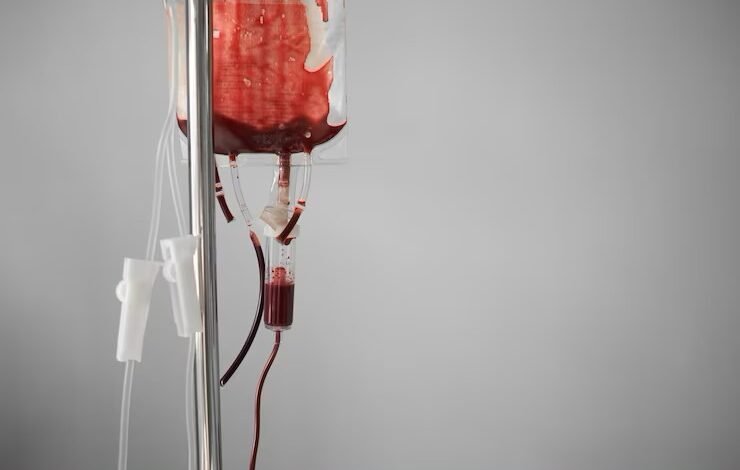What Are Side Effects of Blood Transfusion?

Blood transfusions are given to increase the amount of oxygen in your body, restore blood volume, and correct clotting problems.
Today, all blood is carefully screened to prevent infections and other side effects.
Some patients get fever or chills after a transfusion, usually because they are reacting to the white blood cells, plasma, or platelets in the donated blood.
Acute Hemolytic Reaction
An acute hemolytic reaction is a serious side effect that can occur after a blood transfusion. It can be either immune-mediated or non-immune-mediated.
Immune-mediated reactions result from the recipient’s antibodies attacking the donor red cells. Typically, these reactions occur when the donor’s blood is not a match for the patient’s blood group (ABO).
Symptoms can include chills, rigors, fever, dyspnea, facial flushing, and a burning sensation at the IV site. Patients may also experience nausea and vomiting.
These reactions can be life-threatening and can result in acute renal failure, shock, and disseminated intravascular coagulation (DIC). They can be fatal, especially when they occur after a transfusion of more than 20 mL.
Delayed Hemolytic Reaction
Delayed hemolytic transfusion reactions (DHTRs) occur 3-10 days after the transfusion of blood products that appear serologically compatible. DHTRs may be caused by anamnestic antibodies that were not detectable in pretransfusion testing due to low titer.
The reaction can be mediated by thermal, osmosis, or mechanical injury. These can damage the red blood cell membrane and cause hemolysis, which can be intravascular or extravascular.
If a delayed reaction occurs, it’s important to identify the cause and assess the risk for a future hemolytic reaction. This will help to prevent it from occurring in the future.
Most DHTRs are mild and do not require treatment. However, a life-threatening condition called hyperhemolysis syndrome can develop. This can lead to a decline in hemoglobin concentration, renal failure, and dark urine that reflects hemoglobinuria.
Acute Allergic Reaction
When a person receives a blood transfusion, their body reacts to the antigens and other proteins in the donor blood. Some of these reactions are not harmful, but others can be life-threatening and may require immediate medical care.
An allergic reaction (an-a-FI-LAK-sis) occurs when a person’s immune system overreacts to a harmless substance, such as food, medicines, or insect stings. This reaction can be mild or severe, and it typically begins within seconds or minutes after a person comes into contact with the allergen.
A reaction is more serious when it reaches anaphylactic status, which can be fatal if not treated right away. Doctors often give an epinephrine injection to help control the reaction.
Urticaria and fever are the most common symptoms of an allergic reaction to a blood transfusion, which are caused by antibodies in the recipient directed against components of the transfused product such as antigens on red blood cells or plasma proteins. Other possible symptoms include flushing, breathing difficulty, and low blood pressure.
Delayed Allergic Reaction
In up to 1% of all transfusions, patients may experience an allergic reaction (anaphylaxis). These reactions are often minor and resolve on their own with antihistamines.
Symptoms include hives, itching, and urticaria. Those with severe reactions, such as breathing problems (bronchospasm, stridor) or circulatory difficulties (hypotension), should be taken to the hospital immediately for treatment.
A delayed allergic reaction occurs days or weeks after a blood transfusion and can be triggered by certain medications, osmotic agents, or heat. Some of these reactions may progress into anaphylaxis, a more serious and potentially life-threatening reaction.
A delayed allergic reaction may be a response to the antigens in the donor’s blood. The antibodies in the recipient’s blood react with these antigens, triggering an allergic reaction that includes symptoms of urticaria and itching.
Also Read Interesting Articles At: Zuhair Articles.




